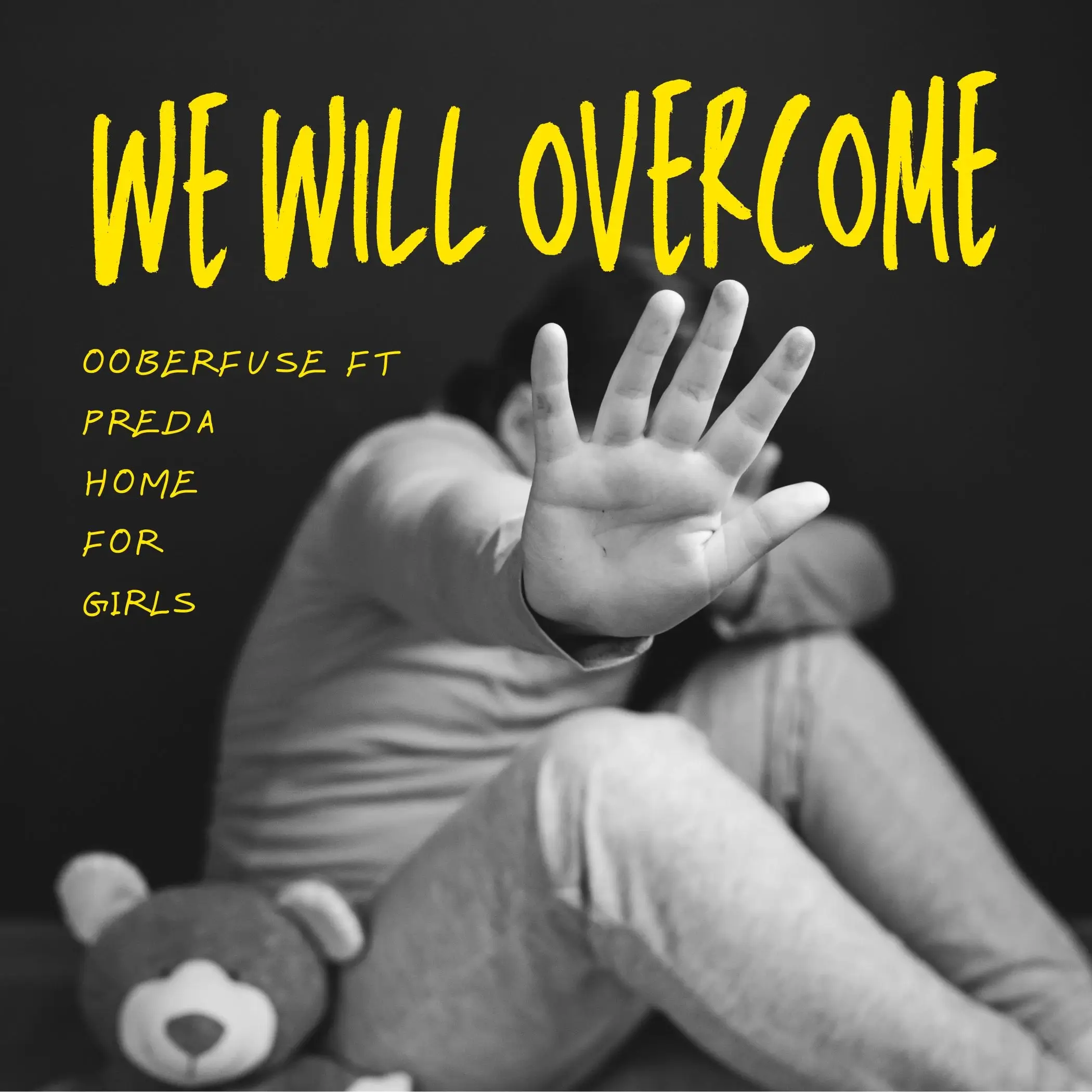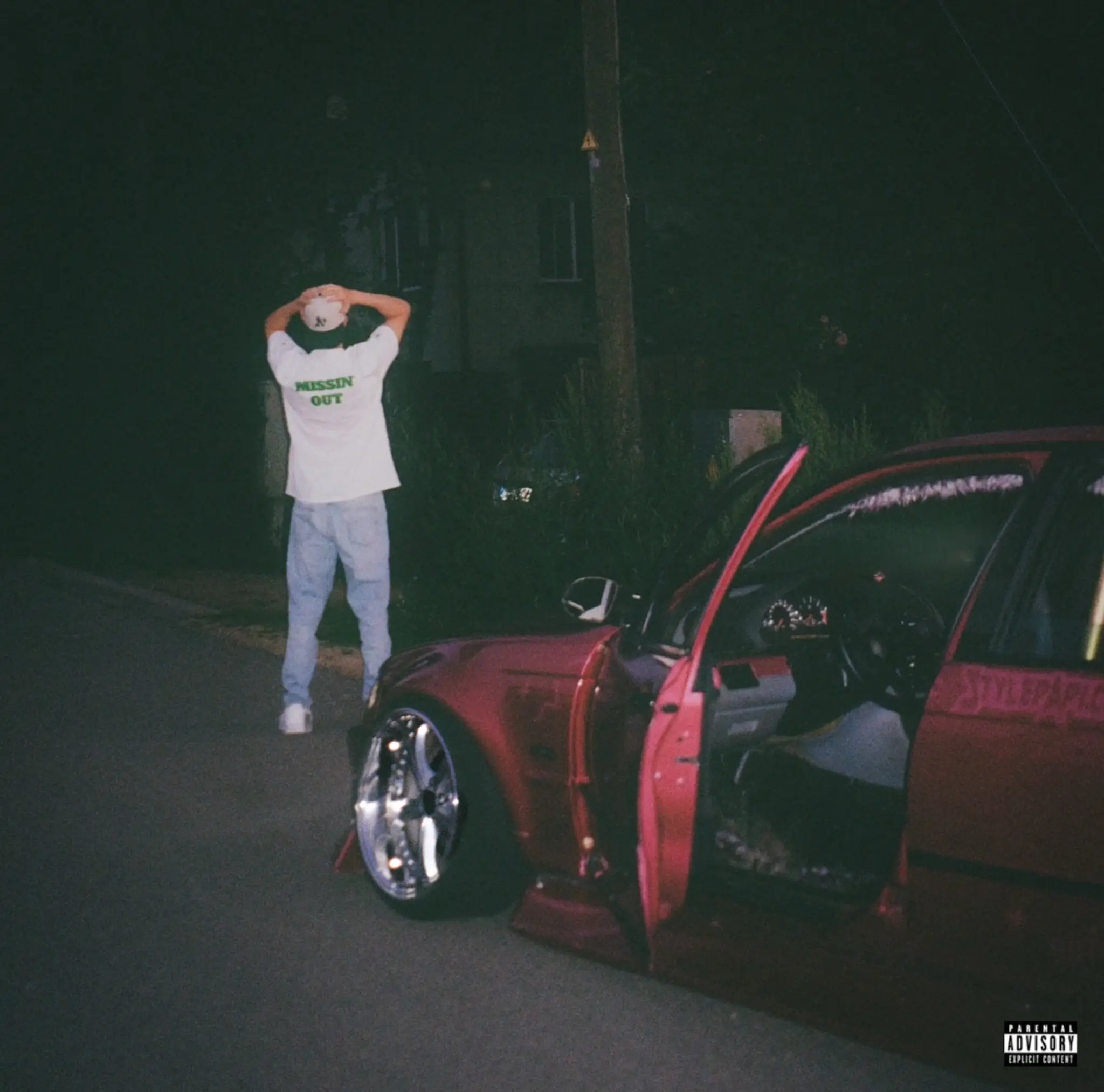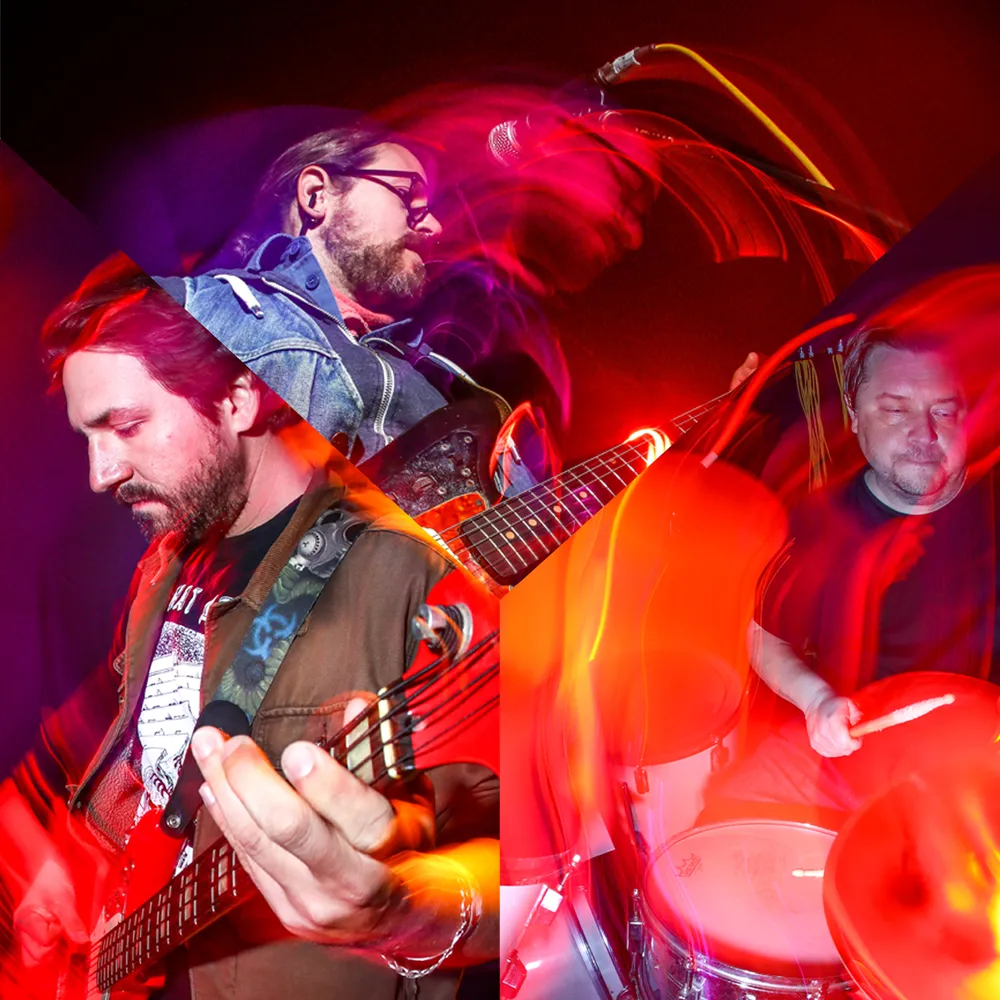There’s something strangely beautiful about an album made entirely in a basement. Not in the romanticized, Hollywood-montage sense, but in the real sense: a probably-too-humid, maybe-questionably-wired below-ground bunker where a man with a guitar and a laptop decided that normalcy was overrated. That man is deadwater, and the result of his subterranean stubbornness is Revelry in Reverie, a record that sounds exactly like what happens when someone picks up a guitar during COVID, realizes life is too short not to yell into a microphone, and then, somehow, becomes legitimately good at it. This isn’t the triumphant rise of a long-trained virtuoso; it’s the far more interesting story of someone who discovered art by falling face-first into it… and then refused to get back up.
What makes the album remarkable isn’t just that it was recorded in a basement; it’s that you can hear the basement in it; in the warmth, the grit, the occasional sonic bruise that proves a human made this. The DIY ethos isn’t a marketing angle; it’s the bloodstream of the album. Every creak, buzz, fuzzed-out edge, and imperfect layer is a deliberate rejection of polish in favor of honesty. Imagine grunge, already a genre built on imperfections, then imagine someone asking, “What if we made it even rougher?” Revelry in Reverie answers this question with the confidence of someone wielding duct tape like it’s a Grammy-winning production technique… and discovering it works better than it has any right to.
Lyrically, the album is equally raw as a chronicle of sobriety, introspection, and the weirdly claustrophobic sensation of trying to find joy again after reformatting your entire life. Sobriety here isn’t portrayed as enlightened clarity; it’s an ongoing quest where the villain is your past self and the final boss fight happens in the silence of Saturday night when you’re not sure what to do with your hands. The “reverie” is the endless thinking. The “revelry” is discovering that thinking doesn’t kill you. Altogether, it forms an unexpectedly potent emotional core; the kind of thematic focus that’s difficult to fake and impossible to engineer through studio gloss.
The album opens with “Neon Black,” a tight, concentrated spark of electricity that punches you in the mouth and leaves before you’ve realized you’re bleeding. It’s a mission statement disguised as a track. “Dying Breed” follows, kicking in with a faint country-lilt in the vocals layered over grunge instrumentation; an unlikely stylistic marriage that somehow works. Then “Spit It Out” arrives, the shortest of the early tracks, all directness and velocity, like deadwater is saying: Get in loser, we’re doing catharsis.
“Siren Sound,” the first major tonal shift, brings four minutes of drifting ambience and echoing space, like being sung to by the version of yourself you’re trying not to be anymore. It’s haunting, atmospheric, and in an unexpectedly sophisticated way, cinematic. It’s also the track where the album first reveals the depth of its compositional instincts. This isn’t just a guy playing riffs in a basement; it’s someone quietly showing they know how to build a world out of sound.
“She Don’t Care” arrives next with a vocal delivery reminiscent of Hobo Johnson if he traded spoken-word theatrics for grunge melancholia. Then there’s “Mexico (Hey Now),” a slow-burner soaked in emo-rock crescendos, the kind that lift gradually, then crash like someone finally exhaling after holding their breath for ten years. Both tracks reinforce the album’s commitment to emotional realism; messy, uneven, and honest enough to sting.
Then comes the heavy artillery. “Voices,” the standout of the record, erupts with grungy riffs, primal yells, and a sense of desperation sharpened into something powerful. It’s the album’s emotional thesis statement; not polished, not controlled, but intensely real. It feels like someone excavating their inner demons with a garden shovel. From here, the album leans even harder into introspection. “Tuesday Evening” explores the monotony of a sober life, ironically delivered through subtly psychedelic tones. “The Hell Song” nails the spiraling internal monologue that arrives uninvited in public spaces. “Darkest Nights” follows with the inevitable existential dread reserved for the moments you turn out the lights and accidentally think too hard.
“Comin’ Back,” the closer, is deceptively hopeful; not in a saccharine way, but in a “look, I’m not dead, and progress counts even when it’s boring” way. It’s cautiously triumphant, grounded, and mature. There’s no heroic swelling orchestra, no “I’ve conquered my demons” finale. It’s a shrug, a smile, and a quiet acknowledgment that healing isn’t glamorous. It’s something you do before folding laundry.
deadwater didn’t set out to make a genre masterpiece. He set out to make something true. The fact that he stumbled into something powerful along the way feels like the ultimate DIY victory. This is the rare basement grunge record that isn’t defined by its limitations, but by the clarity of its vision. Revelry in Reverie is grunge for the emotionally exhausted, punk for the perpetually self-analyzing, and indie for anyone who wants music that sounds like it was recorded five minutes after a breakthrough and ten minutes before a meltdown and it works spectacularly.
Follow deadwater
About the Author

A tenured media critic known working as a ghost writer, freelance critic for various publications around the world, the former lead writer of review blogspace Atop The Treehouse and content creator for Manila Bulletin.










